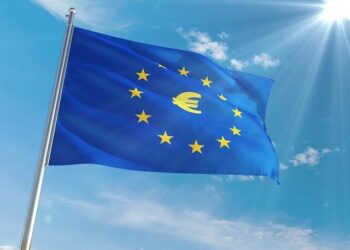The European Commission has given the green light to the first tranche of financial assistance for Montenegro, marking a significant step forward in the Western Balkans country’s path toward greater integration with the European Union. This approval underscores the EU’s continued commitment to supporting Montenegro’s reform agenda and economic development, as part of its broader strategy to strengthen ties with the Western Balkans region. The disbursement comes amid ongoing efforts to advance governance, rule of law, and infrastructural projects crucial for Montenegro’s accession prospects.
European Commission Unlocks Initial Funding Boost for Montenegro’s EU Integration
The European Commission has taken a significant step forward in supporting Montenegro’s path toward European Union membership by approving the disbursement of the first tranche of pre-accession assistance. This initial funding injection is designed to bolster key reforms in governance, the rule of law, and public administration, laying the groundwork for more robust institutional frameworks. The decision emphasizes the Commission’s commitment to Montenegro’s integration process, signaling confidence in the country’s ongoing reform agenda and its alignment with EU standards.
Key areas targeted by this funding include:
- Judicial reforms to enhance independence and efficiency
- Strengthening anti-corruption measures and transparency
- Public sector modernization to improve service delivery
- Support for civil society initiatives to foster inclusiveness
| Area | Allocated Amount (EUR) | Expected Outcome |
|---|---|---|
| Judicial Reform | €5 million | Improved court efficiency |
| Anti-Corruption | €3 million | Increased transparency |
| Public Administration | €4 million | Enhanced citizen services |
Detailed Analysis of Allocation Priorities and Expected Impact on Montenegro’s Development
The initial tranche approved by the European Commission directs a significant portion of funds towards strengthening critical infrastructure and fostering sustainable economic growth in Montenegro. Priority is given to projects aligned with the EU accession criteria, especially in areas such as energy efficiency, environmental protection, and public administration reform. In particular, investments aim to:
- Modernize transport networks to improve regional connectivity and trade flows.
- Enhance renewable energy capacities, reducing dependence on fossil fuels and bolstering energy security.
- Support digital transformation in public services to promote transparency and efficiency.
- Strengthen judiciary and anti-corruption bodies, paving the way for a more robust and accountable governance framework.
This allocation is expected to have a transformative impact, not only in terms of infrastructure but also in socio-economic development. By facilitating access to better services and promoting sustainable investments, the tranche supports Montenegro’s ambitions for EU integration while addressing pressing national challenges such as youth unemployment and regional disparities.
| Priority Area | Allocated Funds (million €) | Expected Outcome |
|---|---|---|
| Transport & Connectivity | 45 | Improved trade and mobility |
| Renewable Energy | 30 | Lower carbon footprint |
| Key Focus Area | Recommended Action | Expected Outcome |
|---|---|---|
| Infrastructure | Fast-track sustainable transport and energy projects | Improved connectivity and lower emissions |
| Governance | Implement transparent procurement systems | Reduction in delays and corruption risks |
| Capacity Building | Train civil servants on EU funding management | Higher absorption rates and project quality |
| Community Engagement | Involve local stakeholders early in projects | Greater support and sustainable results |
Wrapping Up
The approval of the first tranche of funding by the European Commission marks a significant milestone in Montenegro’s ongoing path toward EU integration. This financial support underscores the commitment of the European Union to foster stability, development, and reform in the Western Balkans. As Montenegro continues to align with EU standards and implement necessary reforms, further cooperation and investment are expected to play a crucial role in advancing the country’s European aspirations. Stakeholders will be closely watching how this initial funding tranche translates into tangible progress on the ground in the coming months.















